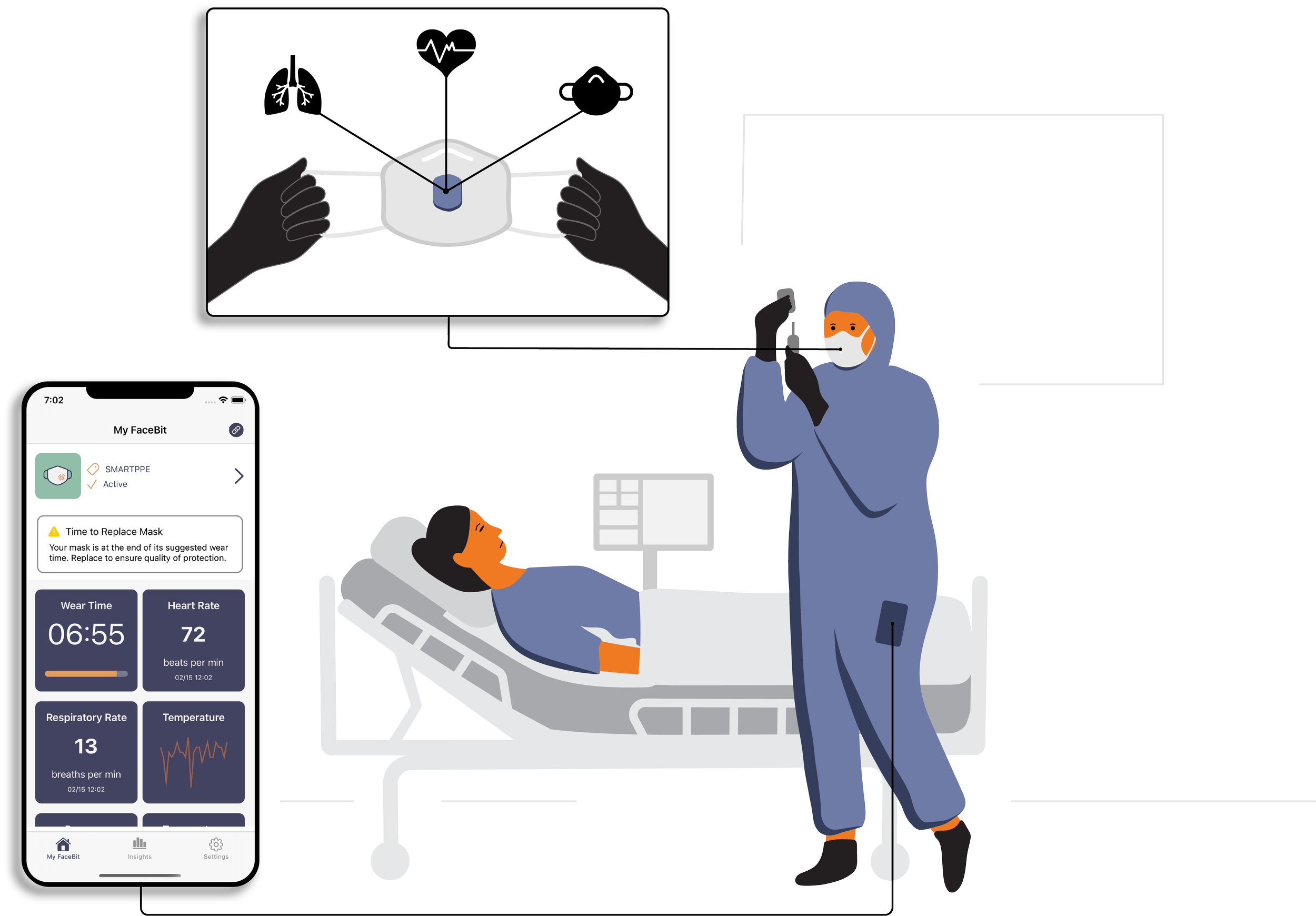FaceBit
A platform for smart facemasks
FaceBit is an end-to-end exploration platform that can be attached to any face mask. This platform includes a low-power, versatile PCB and mobile application to collect sensor data inside the mask during routine wear.
In the first year of the pandemic, the Hester Lab at Northwestern University received emergency grant funding from the NSF to develop a smarter face mask. Alexander and Blaine were tasked with leading the project as part of their doctoral research.
The system was built for sensing flexibility
The device boasted a plethora of sensors: air quality, temperature, accelerometer/gyroscope, barometer, microphone, magnetometer, and even an accessory port to plug other sensors into.
We developed a companion iOS mobile application allowing for raw data collection from the devices and real-time data collection of heart and respiratory rate computed metrics.













